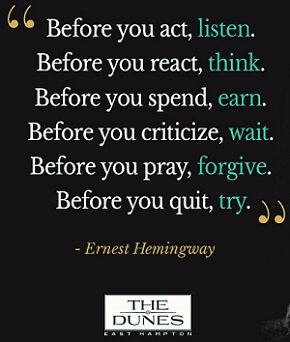For our Program Spotlight this time, we will be focusing on Dialectical Behavioral Therapy (DBT). This innovative form of therapy is used to help clients change unwanted behavior for a more desirable one.
How Does Dialectical Behavioral Therapy Help Those In Recovery?
 Dialectical Behavioral Therapy is used to help people dealing with a number of issues, including self-harm, substance abuse and suicidal thoughts. Through DBT, clients learn how to regulate their behavior by learning to identify the triggers that lead to emotional reactions in them.
Dialectical Behavioral Therapy is used to help people dealing with a number of issues, including self-harm, substance abuse and suicidal thoughts. Through DBT, clients learn how to regulate their behavior by learning to identify the triggers that lead to emotional reactions in them.
Once they know how to identity their personal triggers, they can take steps to deal with the thoughts and feelings that lead up to the unwanted behavior. DBT assumes that people do the best they can, but may lack the skills or could be influenced by either positive or negative reinforcement that interferes with the manner in which they function.
Understanding Bad Choices & Receiving Positive Alternatives
With this approach to treatment, the client and the therapist work together as allies. The therapist is someone who can accept the client’s feelings through the counseling process, while letting them know that some choices could have been made in a more positive manner, and then suggesting some alternatives.
Focus And Relaxation Through Mindfulness
Clients who are being treated using the DBT approach learn mindfulness as a foundation for all the other skills taught for this type of therapy. It helps the client to learn to stay focused in the moment and to accept emotions and situations without judgment.
Mindfulness meditation is based on Buddhist practices, although as taught in connection with Dialectical Behavioral Therapy, there is no spiritual or religious affiliation at all. It is presented as an effective relaxation technique where a client can pay attention to thoughts, feelings and senses with a sense of perspective.
Self-Soothing & Self-Nurturing
By working with a therapist and learning techniques in DBT, a client will develop tools for self-soothing during stressful situations. These are strategies for behaving in a kind and nurturing way towards one’s self. This is vitally important for those who have gone through addiction, as they have been dealing with stress negatively and treating themselves and others without the love and respect needed for so long.
Regulating Emotions And Gaining Healthy Coping Skills
The ability to regulate emotions is important when a person is angry, anxious, frustrated or depressed. Our clients learn how to identify exactly what he or she is feeling, obstacles to changing the emotion, reducing vulnerability to that emotion and increasing mindfulness in the current situation. Using techniques to reduce distress will help those in recovery to cope with the challenging situation without resorting to their normal unhealthy coping skills.
To Learn More About DBT & Our Other Effective Treatment Options, Call Us Now!







